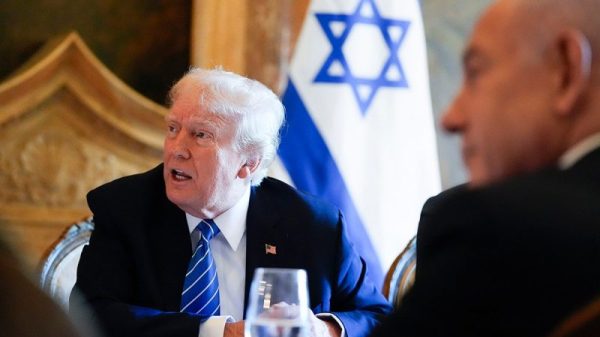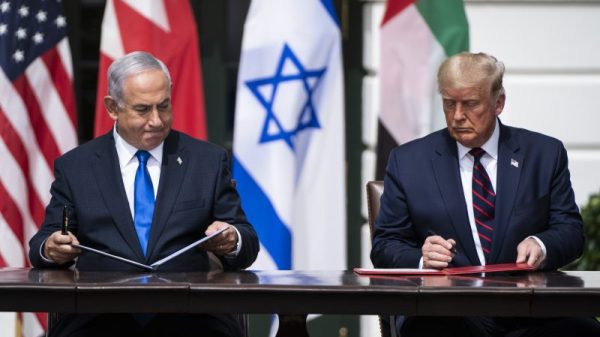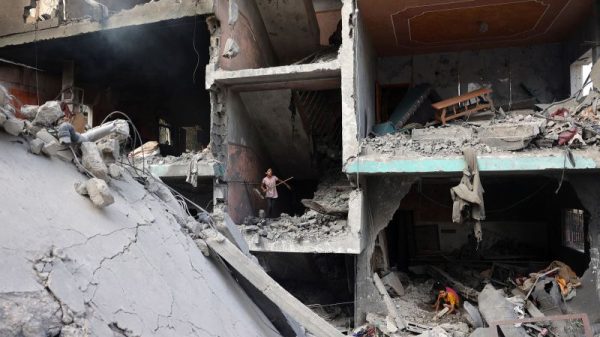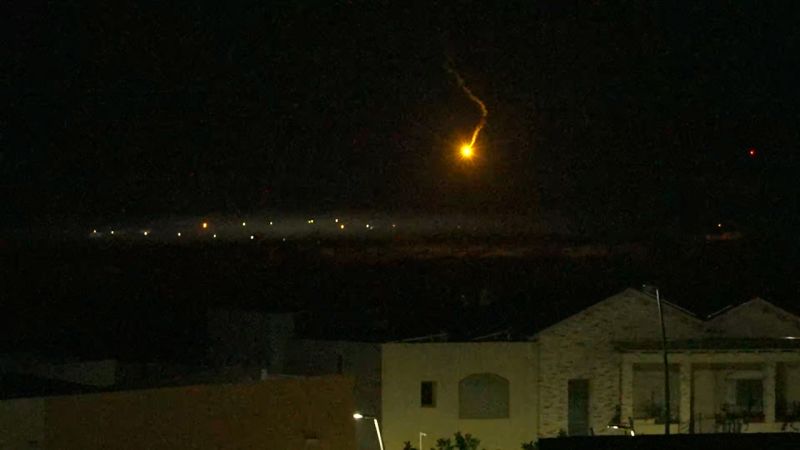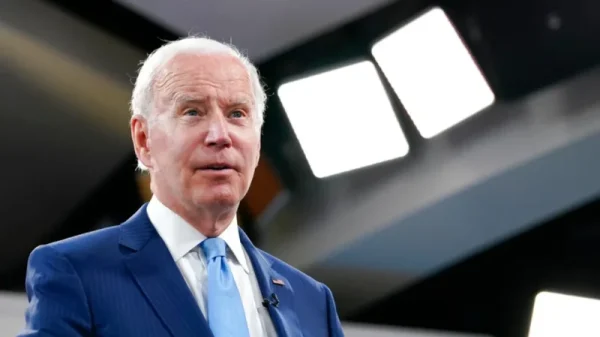Tal and Zak have no idea how long they’ll be deployed in what the Israelis call “the Gaza envelope,” the area in southern Israel that was attacked by Hamas terrorists two weeks ago.
Their unit is part of a massive buildup of Israeli troops and military material on the Gaza border. On top of its regular force, the IDF has also called up 300,000 reservists who reported to their bases within hours. Across Israel, highways in the vicinity of major bases are lined with thousands and thousands of cars, abandoned by reservists rushing to take up arms.
A ground incursion by Israel into Gaza now seems inevitable. On Thursday, the Israeli Defense Minister, Yoav Gallant, told troops gathered near the border that they would “soon see” the enclave “from the inside” and said Gaza will “never be the same.”
But what that operation might look like remains unknown. The IDF could launch a full-scale invasion, or conduct more precise incursions aimed at recovering the hostages and targeting Hamas operatives.
What will happen after that is an even bigger question. While the Israeli leadership speaks about the need to get rid of Hamas, the plan for the future of Gaza and its more than 2 million people people remains unknown.
“There is a consensus that any other option than to totally eliminate Hamas would be terrible, not just for Israel, but for the entire area, and then even globally,” said Harel Chorev, senior researcher at the Moshe Dayan Center for Middle Eastern and African Studies at the Tel Aviv University.
But Hasan Alhasan, a research fellow for Middle East Policy at the International Institute for Strategic Studies, said the plan to annihilate Hamas could be dangerous and complicated – and may have unforeseen consequences.
Humanitarian disaster
The IDF has told all civilians in north Gaza to evacuate to the south as it continues pounding the enclave with airstrikes. That order has created a humanitarian disaster of epic proportions.
The UN’s Office for the Coordination of Humanitarian Affairs (OCHA) said on Saturday that about 1.4 million people had been displaced in Gaza – more than 60% of the entire strip’s population. Gaza has been under blockade by Israel and Egypt for years, but after the Hamas attack, Israel also cut off its electricity, food, water and fuel supplies.
Israel said it restored water supply on October 15, but without electricity to run pumping station, water authorities in Gaza say they cannot even tell if water has been restored, let alone pump it.
“The concern, within Egypt especially, is that Israel’s strategy of making the humanitarian situation very difficult in Gaza is ultimately meant to force a mass expulsion of Palestinians from Gaza into the Egyptian Sinai,” Alhasan said, adding that Egypt has the backing of all of the Arab states in that it would not allow this.
“The Jordanians are also concerned that if we see a mass expulsion of Palestinians from Gaza, that this would create a precedent and that Israel’s right wing government would attempt to solve the Palestinian issue once and for all by expelling them en masse from Gaza into Egypt and from the West Bank into Jordan,” he added.
‘The most just war’
The huge military buildup around the Gaza Strip border is clearly visible – as is the high morale among the troops. Just down the road from the camp where Tal and Zak are staying, volunteers from across Israel have set up a makeshift pit stop for the soldiers passing by, serving food and handing out soft drinks, religious items, cigarettes and – most importantly, according to some of the soldiers – good coffee.
Rabbi Yitzhak, a military rabbi, has been traveling around the Gaza border, visiting troops and offering his encouragement.
“I am here to make the soldiers stronger, so they can focus on their job… as time goes by, they can get tired, I want to make sure they know we love them and appreciate them. They are nervous, but they are strong,” he said, adding that his main purpose is to boost the soldiers’ morale so that they can “finish the job.”
Not that he needs to do much. The brutality of the terror attack by Hamas has shaken Israel to its core and the large number of its victims has made it personal to most.
One young reservist, who was called back just a year after finishing his compulsory military service, said the war Israel was waging on Hamas was “the most just war one can imagine.”
“There is nothing more just than this – they murdered innocent civilians. That’s why we are here,” he said, asking for his name to remain private as he is not officially allowed to speak to media.
He and the other young men he served with have been reunited near the Gaza border, training for what’s to come next – whatever that may be. “We are ready, but we hope it will end soon,” he added.
Tight grip
What is clear is that for people in Gaza, it will not end soon. What happens to them after the operation ends is anyone’s guess. Most Israeli politicians have remained vague on their plans for the enclave, hinting it could look more like the West Bank in the future.
Hamas, an Islamist organization with a military wing, has been in control of Gaza since it won a landslide victory in the 2006 Palestinian legislative elections – the last vote to be held in Gaza – and then violently expelled Fatah, the faction that makes up the backbone of the Palestinian Authority, in 2007.
Unlike some other Palestinian factions, Hamas refuses to engage with Israel. It is also in a political war with the Palestinian Authority, which governs the West Bank and engages in security coordination and talks with Israel.
Hamas has been designated a terrorist organization by the United States, the European Union and Israel, but it also runs religious and social welfare programs in Gaza, which is partially how it maintains a tight grip on the population.
So if Israel succeeds in removing Hamas, it will need to replace the group with an alternative government.
Avi Dichter, a former head of the Israeli Security agency, or Shin Bet, and the current minister of agriculture, said that what Israel wants to achieve in Gaza is the same level of security control it currently has in the West Bank, where it maintains complete access on its own terms.
“It will be a post-Second World War like situation in the Gaza Strip in terms of destruction, so it will need to be taken care of,” he said. He said he believed there would be international cooperation on the rebuilding of Gaza, because international aid worth tens of millions of dollars has been flowing into the enclave for years – but much of it has been misused by Hamas, he said.
“You have to understand how much damage is inflicted on all of the Palestinians by Hamas. I was talking to a Palestinian Authority official and their message is clear: ‘destroy them, destroy them, this time, Israel must destroy Hamas, otherwise we’re done,’” he said. “Of course, publicly, they condemn Israel,” he added.
The Palestinian Authority is controlled by Fatah, Hamas’ political rival.
However, Alhasan said securing international help could be difficult if Israel proceeds with its plan to invade Gaza.
“I think it would be very difficult to secure cooperation from the Arab states on the post-Israeli incursion-scenario, because they weren’t on board with it from the get go … I think it will hinge on whether Israel goes for a total annexation of Gaza, or whether it opts for for something else,” he said.
He said the biggest risk is that Israel’s heavy-handed approach – which could lead to a high number of civilian casualties – will only lead to Hamas being replaced by another extremist group.
“This is what militant groups do. They provoke an overreaction, and that overreaction helps further radicalization, and essentially allows them to continue recruiting people to continue to receive support because the further down we go the path of violence, the more it seems that the only answer is violence,” he said.
The IDF campaign has so far left more than 4,000 people in Gaza dead.
“I think this is why the mass expulsion scenario becomes suddenly not inconceivable in Israel, if the objective is to eliminate Hamas, but also to prevent Hamas from regenerating or some other potentially even more radical group from emerging,” Alhasan added.
But Chorev said an international effort to rebuild Gaza economically could break this cycle of violence. “If all that international money that was invested into the (Hamas) projects could go to education, to welfare, to industry… you know, there are great people there (in Gaza) and the prospects would be better,” he said.
As they help their unit fire more missiles towards Gaza, with the goal of taking out Hamas targets one by one, Tal and Zak are not thinking about the future, not beyond the next day or so.
“We try hard not to have off times. Because if you don’t do anything, your mind goes to places you don’t want to be. All of the friends we’ve lost, the family, many of us lost their close relatives and friends, some even their boyfriends and girlfriends,” he said.







